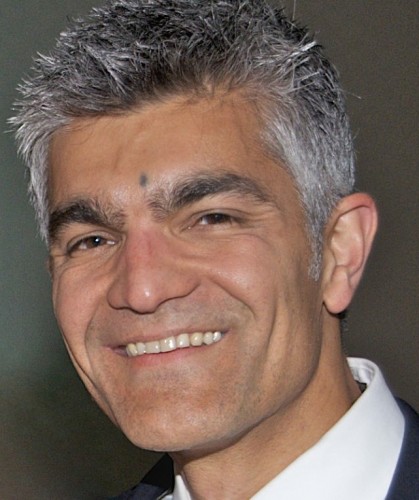Remodeling Science:
An Opportunity for UC Davis
 Rajul (Raj) Pandya, is the
founding director of the American Geophysical Union’s Thriving
Earth Exchange (TEX). On Monday, May 7th, at the Shrem
Museum, Pandya will deliver a keynote address to kick off a day
of learning, discussion, and networking activities with faculty
members, researchers, and other partners, sponsored by the
UC Davis Office of Research. Read on to hear about Raj’s planned
talk, and
click here for more details about the event, and a chance to
RSVP.
Rajul (Raj) Pandya, is the
founding director of the American Geophysical Union’s Thriving
Earth Exchange (TEX). On Monday, May 7th, at the Shrem
Museum, Pandya will deliver a keynote address to kick off a day
of learning, discussion, and networking activities with faculty
members, researchers, and other partners, sponsored by the
UC Davis Office of Research. Read on to hear about Raj’s planned
talk, and
click here for more details about the event, and a chance to
RSVP.
Remodeling Science: An Opportunity for UC Davis
In the face of multiple wicked and intersecting challenges, including diminishing trust in expertise, unprecedented environmental impact, growing inequity, and declining budgets, we are outgrowing our current model of science.
Fortunately, we’ve already started remodeling. Through activities like citizen science, community science, and action-oriented research we are expanding the footprint of science and adding on to the Ivory Tower where scientist have worked alone to conduct theoretical research. Working with people from all walks of life, we are building a civic plaza where scientists and non-scientists work together to connect research to application. In addition to well-scoped problems, theoretical insight, focused disciplines, and scientific leadership, the remodel makes room for collaborative leadership, transdisciplinary approaches, use-oriented science, and design-based practices. Through remodeling, we continue to get better at tackling the messy, interconnected, and wicked problems that we face together.
In practical terms, the remodel will allow scientists to do more than develop global climate models to diagnose climate change - it gives them room to work with communities of color on projects that create thriving, resilient economies for all. Scientists will still have room to publish on on virus pathology, but they’ll also be able to work with AIDS activists to design research that leads to new treatment options. Scientists will analyze chemical processes in their laboratory, communities will monitor health impacts near sites of hydraulic fracturing, and they’ll meet in the new plaza to compare notes and share results.
Remodels aren’t easy, and this one will place new demands on both individuals and institutions. Institutions will need to raise funds for the remodeling, hire a plaza workforce, and welcome people into the plaza – including people they’ve previously excluded. The remodel will impact individuals as well – they’ll need to welcome new colleagues; develop and value new skills; and explore new epistemologies. The remodel will challenge our understanding of what it means to do science, who is eligible to do science, and what activities count as science.
Good remodeling projects pay off, and this one is no exception. New participants will offer new questions, new insights, and new methods. Citizen science can offer additional data and better data coverage. Community engagement can enhance public-support for science and increase funding for research. New partnerships will both expand the impact of science and create new ways to support science. And ultimately, all of this can help us navigate toward a sustainable and equitable future.
With this talk, I’d like to contribute to an ongoing conversation about how UC Davis itself could remodel to be a leader in this expanded vision for science. I will share practices from other institutions and offer tips based on successful projects I’ve observed around California the US, and the world. We will review a robust and growing body of research and practice on collaborative approaches to science and application. Together, we can use the research and examples, as well as successful efforts from inside UC Davis, to start the remodel.








